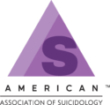Washington, D.C. (November 21, 2019): The American Association of Suicidology (AAS) is pleased to announce that Margaret Hines, Founder and CEO of the Kevin and Margaret Hines Foundation, has joined its Board of Directors. Through the foundation and additional work, the Hines have managed to reach thousands of people with their uplifting, inspiring, and hopeful suicide prevention messaging, stemming from their trainings, presentations, and workshops.
“I am honored and grateful to be nominated to the board of the American Association of Suicidology. I believe the synergy between the committees will drive the change we need to see in the suicide prevention space,” said Margaret. “Kevin and I have a vested interest in the lived experience and impacted family sectors, for obvious reasons. What is not widely known is our investment and personal interest in the research, crisis center, and clinician sectors. We believe in the power of collaboration within a diversified group of individuals to successfully create change and look forward to contributing to AAS efforts.”
Margaret’s inclusion will amplify the already impressive roster of the Board, which includes world-renowned suicide prevention experts, academic professionals, researchers, and advocates, many of whom are either loss or attempt survivors.
“I’m excited about the breadth of experience Margaret is adding to our board,” said Colleen Creighton, Executive Director of AAS. “Her expertise, contributions, and energy, bring AAS’s impact to the next level.”
AAS is dedicated to providing representation that effectively communicates the needs and goals of its membership. By continuing to include a diverse roster of individuals who can address these components, AAS, its committees, and its Board work strategically to create programs focused on ending suicide in this country and throughout the world.
For the Media: Responsible reporting on suicide, including stories of hope and resilience, can prevent more suicides. Please visit the Suicide Reporting Recommendations for more information.
About AAS: Founded in 1968 by Edwin S. Shneidman, PhD, AAS promotes the research of suicide and its prevention, public awareness programs, public education and training for professionals and volunteers. The membership of AAS includes mental health and public health professionals, researchers, suicide prevention and crisis intervention centers, school districts, crisis center volunteers, survivors of suicide loss, attempt survivors, and a variety of lay persons who have in interest in suicide prevention. You can learn more about AAS at www.suicidology.org.
About the Kevin and Margaret Hines Foundation: The Hines Foundation identifies and invests in the most promising research, programs and interventions for suicide prevention and brain/mental health. We fund and support a series of focused initiatives and partner with the public sector to leverage its impact for our shared causes.
Press Contact:
Chris Maxwell
Director of Public Relations and Media
cmaxwell@suicidology.org
###
